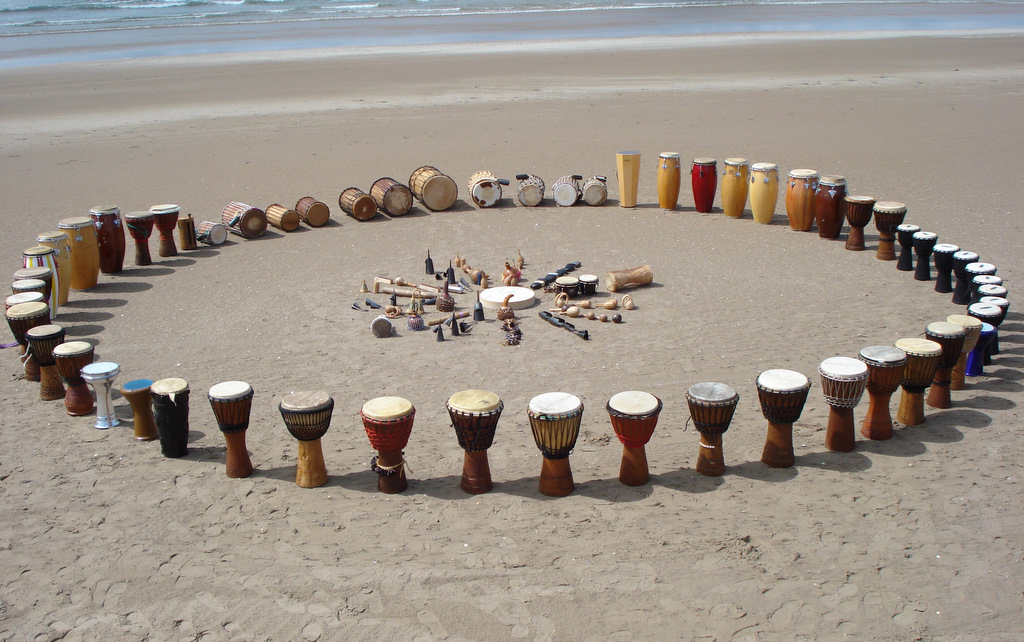Antidepressant Drum Circles
As our scientific and cultural understanding of mental health continues to progress, finding solutions for people struggling with depression become increasingly important. Long gone are the days when people who were struggling with mental health issues were locked up in prison-like asylums. However, modern drugs can often have a similarly oppressive effect on sufferers, as people’s emotional responses are numbed and they become unable to experience highs as well as lows.
These drugs are often thrown around without caution, and they fail to acknowledge the circumstances behind the individual’s depressive state. They attempt to treat the symptoms rather than the root cause. A group of UK-based researchers seems to have found an unlikely cure – group drumming.
The study, which was conducted earlier this year, worked with a group of 30 adults who were already being treated for depression but had refused the use of antidepressants. The participants were split into two groups, one being assigned a 90-minute group drumming session once a week and the control group enrolling in quiz nights and other social activities. All drumming sessions were conducted on traditional African djembe drums, with the group sat together in a circle.
After ten weeks the drumming group had significantly improved their mental health. There was a clear reduction in depression and anxiety, as well as a vast improvement in the social resilience of each individual involved. Physically, every member of the drumming group shifted from a pro-inflammatory immune profile to anti-inflammatory. The study proved both the benefits of communal drumming and the link between mental health and underlying inflammatory immune responses.
The control group saw very minimal improvements and in the follow-up tests three months later; the drumming group had maintained their improved state of mental health. One theory as to why the drumming circle works is that the activity of producing music, alongside the sense of community that the circle gave the participants, led to an increased feeling of fulfillment and gave them something to look forward to each week.
The reason for the vast improvement is open for debate. However, the results are indisputable. The ancient art of group drumming helps people with depression and boosts your health. These findings and other associated research could continue to alter the way we view and treat mental health issues.
It is a move towards a future where doctors recommend drug-free solutions that treat us all as individuals rather than treating mental health sufferers as broken cogs in the machine. A future set to the rhythmic sound of drums.
*Article originally appeared at The Hearty Soul.












